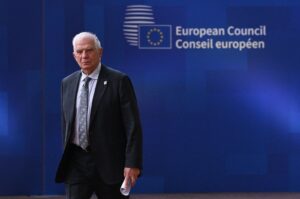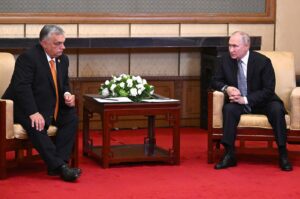Austria’s new three-party coalition government, composed of the conservative Austrian People’s Party (ÖVP), the Social Democratic Party (SPÖ) and the liberal New Austria and Liberal Forum (NEOS), was sworn in on Monday, ending months of political deadlock.
President Alexander Van der Bellen administered the oath to Cabinet members, urging the three factions to prioritize the nation’s interests over party agendas. He also emphasized the need for the new government to play an active role in strengthening the European Union amid rising global tensions.
“We must strategically secure peace in Austria and Europe,” Van der Bellen said.
The coalition will be led by ÖVP head Christian Stocker as chancellor, SPÖ leader Andreas Babler as vice-chancellor and NEOS leader Beate Meinl-Reisinger as foreign minister. The ÖVP and SPÖ each appointed six Cabinet members, while the NEOS holds two ministerial posts.
The swearing-in marked the conclusion of a five-month search for a new government. The far-right Freedom Party of Austria (FPÖ) won the September parliamentary elections but was forced into opposition after coalition talks with the ÖVP failed earlier this year.
One of the government’s first measures will be suspending family reunions for individuals granted asylum, pending action from the Interior Ministry. Chancellor Stocker said the current situation, particularly the strain on schools, required such measures. “We must sometimes take steps, even if they are controversial,” Stocker said, adding that he would seek allies at the European level, noting, “We’re not alone in this.”
Babler called the migration policy a compromise. “It was important to us to talk about integration from day one,” he said, emphasizing access to the labor market and mandatory language and values courses for migrants.
“Immigrants must quickly contribute to taxes,” he added.
Meinl-Reisinger echoed the focus on integration, stating: “We must do everything we can to improve integration finally. That is what everyone expects.”
Beyond migration, the government’s priorities include boosting the economy and addressing Austria’s large budget deficit.




















































Be First to Comment